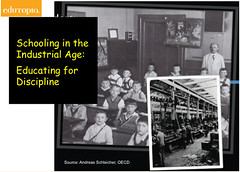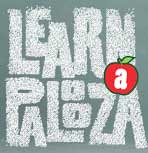A few weeks ago, I listened in on a webinar entitled “Lessons from Abroad: International Standards and Assessments� presented by Stanford professor and renowned education researcher Linda Darling-Hammond (I also attended the Kerner Forum at Stanford a year ago where she was the keynote speaker). It’s been a busy few months since I came out of my sabbatical, and I’ve focused a lot on work and the efficacy of what we do, so I was interested to hear more about international education standards.
Overall the presentation was quite eye-opening, especially in regards to America’s archaic and sometimes obsessive focus on results, to the detriment of actual student learning. She points out that while most US standardized tests (think SAT, ACT, CAHSEE, ABCDEFG…) are designed to assess whether students learned what they were taught in school and focus on recall and recognition of facts, there are a set of international tests designed to assess if students can “apply what they’ve learned to new problems and situations, focusing on inquiry and explanations of ideas.�
How novel.
 She goes on to mention how schooling evolved through the ages from “The School of the Church� in the middle ages to the Industrial Age’s emphasis on educating for discipline. It made sense back then because workers in factories and other industrialized functions required routine manual and cognitive behavior to be successful. But the demand for skills changed, especially over the last 20 years with rapid growth in technology, social and cultural contexts.
She goes on to mention how schooling evolved through the ages from “The School of the Church� in the middle ages to the Industrial Age’s emphasis on educating for discipline. It made sense back then because workers in factories and other industrialized functions required routine manual and cognitive behavior to be successful. But the demand for skills changed, especially over the last 20 years with rapid growth in technology, social and cultural contexts.
The education challenges today and in the future are to prepare motivated and self-reliant young people to analytically think and interact via multiple mediums.
Welcome to the Knowledge-based Society, kid.
So what can be done to take our slow and bureaucratic education system to the next level – to prepare our youth to be competitive for the knowledge-based society?
1) Improve the use of technology in schools – Remember your school’s computer lab? Get rid of it! I envision a future where students don’t have to go to a lab to access computers, where the technology is built into every classroom and seamlessly integrated into the learning experience. Imagine if teachers used technology to have real-time student assessments so that they can adjust their teaching techniques and styles as quickly as their students can text their classmate across the room.
2) Institute summers of service – Americans need to stop wasting summers! I don’t necessarily think we should have year-round schools, but I imagine a future where instead of wasting away at home playing video games, students are engaged in summer learning activities, like community service or entrepreneurial endeavors. Check out this cool start-up social venture that shows amazing promise for this initiative: Summer Advantage.
3) Invest in recruiting, retaining, and developing teachers – By strengthening the professionalism of the teaching force, teachers will not only get the training that they need to continuously grow, but teachers will also want to stay in their profession. There are interesting models out there that are experimenting with performance-based pay for teachers, most notably in Washington, DC and Singapore, and while I don’t know if that specific change will create the desired results, I do know that teacher compensation needs to rise to that of comparable civil servants.
4) Institute leadership training for principals and school leaders – Outstanding principals drive schools, teachers and students to achieve better results. School leadership is an important and sometimes misunderstood piece of the education puzzle. At a meeting with a principal at one of our partner schools recently, she constantly joked around about how tough her job was and how her marriage was at stake because of all of her responsibilities. Yet the culture and tone that the principal sets impacts the quality of instruction, the development of staff, and orderly administrative tasks. Because it can be lonely at the top, principals should routinely collaborate with colleagues and receive leadership training from seasoned coaches.
5) Implement assessments to inform investments & improvement rather than to deny diplomas and sanction schools – This last one is a Linda Darling-Hammond staple, as I have heard her say it at several events. Because of No Child Left Behind, American assessments are obsessed with results. “Assessment systems should support the learning of everyone in the system, from students and teachers to school organizations and state agencies.� School systems need to take back the power of assessments so that they can be used positively.
Anyway, there’s my end-of-the-year rant on the education system. Click here to read more about the Darling-Hammond’s webinar.
Which of the five improvements above do you think will be the most important for the next generation of education? Or do you have an idea for an improvement I didn’t mention?
 I’m going to four weddings in the next nine weeks. As Karla told me, we are coming to that age when many of our friends from high school and college are getting hitched.
I’m going to four weddings in the next nine weeks. As Karla told me, we are coming to that age when many of our friends from high school and college are getting hitched. DC called “
DC called “